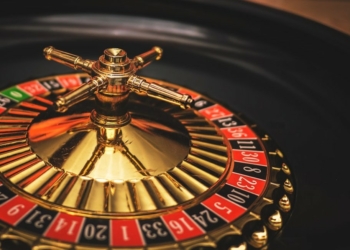Human history is inextricably linked to the history of gambling. It appears that the only thing that unites all gambling origins is that 100% of people gathered somewhere out of boredom, you can go to RajBet.

The authors of this post will not attempt to trace every step in the evolution of gambling because it appears to be impossible. The goal of this post is to highlight some critical points that can be considered milestones on the way to today’s gambling knowledge. How did it happen that today everyone can afford to play without getting up from the couch?
The First Gambling Entries
The fact that gambling has existed throughout human existence is stated in all sources on this topic. The existence of gambling can be traced back to the Paleolithic period, around 10 thousand years BC when man was just beginning to use stones. The first six-sided dice were found in Mesopotamia around 3000 BC. They were, however, based on astragalus, which dates back thousands of years.
The first ever form of gambling that came from Ancient China mentioned the earliest time when and how people began gambling. Based on a reference in the Chinese book “The Book of Songs” to a drawing of a tree, it is possible that the tiles became a component of the lottery game.
There is even a story in the Bhavishya Purana, an ancient Indian book, about a prince who gambled away his entire fortune, including his own wife. The epic “Mahabharata” refers to gambling as a dice game, which it describes in sufficient detail.
Gambling Games in History
The term “casino” was initially translated as “house,” and the first gambling house was established in Italy, in Venice, in the second half of the 17th century, as it is not surprising that the church of St. Moses became a haven for players. As a result of the government’s attempt to control citizens’ uncontrollable excitement during carnivals, many games have reached our days, but when and where they appeared is shown in the table below:
| Game | When | How Originated |
| Dice | 3100 BCE | The oldest confirmed dice were discovered alongside other game pieces during excavations in Turkey. The date is listed as “near” 3000 BC — possibly a little less. |
| Baccarat | 1400s | Each player was required to have two or three cards. The winner could be determined by dividing each player’s total balance by ten. That is how people began to gamble with cards. |
| Blackjack | 17 th century | The version with the most documentary evidence of origin is the most widely accepted. The game is known as Vingt-et-Un, which translates to “twenty-one” in French. It originated and gained popularity in France before being transformed into modern blackjack by Americans. |
| Poker | 17 th century | Poque, the forefather of poker, originated in France in the 17th century. They were brought to North America by French colonists, including New Orleans and its environs, which became part of the United States through the Louisiana Purchase in 1803. |
| Roulette | 18th century | The game originated in Parisian gambling houses. However, it took about fifty years for the game to reach the level that it is today. Many generations of roulette players are grateful that there was only one zero on the wheel. |
| Slot Machines | 1891 | Sittman and Pitt, a New York-based bad company, invented the first slot machine in 1891. The game featured 5 reels and 50 playing cards. Because the machine lacks a direct payment mechanism, payments were made in the bar. Non-monetary prizes included free drinks and cigars. |
Sports betting can also be considered a type of gambling, and it appears that fans of the Indian sportsbook RajBet are curious about where their hobby came from. Wagering is as old as sports because bets on the outcome of tournaments were made during the first Olympic Games, which were held in 776 BC, according to official records, despite the fact that there were no prototypes of modern bookmakers in Ancient Greece: wagers were made directly.
Mobile Gambling Now
With the advancement of Internet technologies, a significant breakthrough has already occurred: online betting began in the 1990s, and mobile betting has been available since 2010. Internet gambling was the catalyst for the industry’s transformation. The availability of betting shops on the Internet, mobility, and comfort all played a role.
If summarize the entire multi-thousand-year history of individual game development and the gambling industry as a whole, we can identify several periods:
origin;
- Creation of the first casinos and bookmakers;
- Introduction of electromechanical engineering inventions;
- Interaction with telecommunications;
- The emergence of online platforms;
- Development of mobile gambling.
What will be the next step in the industry’s evolution? This is something that gambling fans will be able to watch.
Final Words
Internet users are gradually transitioning from large, bulky desktop computers to small, portable devices. However, this also applies to online gambling, which allows users to play while on the go. History is fascinating, but how fortunate humans are to no longer have to transport entire board games with them.

















